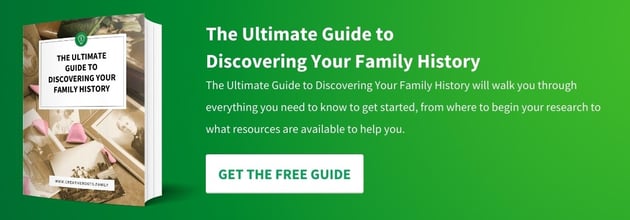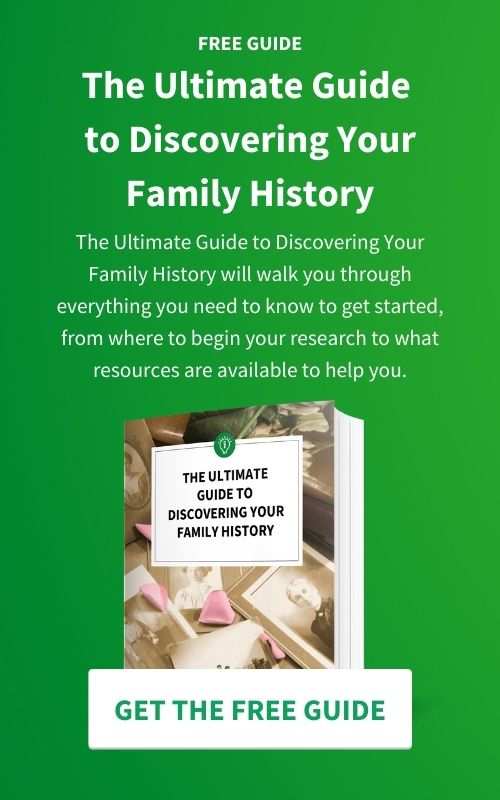How to Begin Your Heritage Discovery Journey: 6 Essential Tips for Tracing Your Ancestors
The fascination with heritage discovery lies in the profound connection it creates with our past, allowing us to uncover the rich tapestry of our ancestors' lives. Learning about one's heritage provides a sense of identity and belonging, illuminating the traditions, values, and stories that have shaped us. This exploration can be exceptionally rewarding, as it often unveils surprising and inspiring tales of resilience, triumph, and cultural diversity.
However, embarking on this journey can initially seem overwhelming due to the vast amount of information to sift through, the complexities of historical records, and the potential for unexpected revelations. It requires time, patience, and diligent research. Despite the challenges, the satisfaction of piecing together one's family history, understanding the context of their life, and honouring their legacy can be an immensely gratifying and emotionally fulfilling experience, strengthening our connection to the past and providing a deeper appreciation for our roots.
Starting with What You Know
To begin your genealogical journey, start by documenting what you already know about your family tree. Commence with your own details, like birthdates and places, and work backward, gradually expanding to your parents, grandparents, and beyond. This foundational information will serve as the cornerstone of your research, making it easier to connect the ancestral dots as you delve deeper into your roots.
Equally important is tapping into the wealth of knowledge within your family circle. Engage in meaningful conversations with older relatives, encouraging them to share memories and anecdotes about your ancestors. These personal narratives often hold the key to uncovering hidden family history gems. Additionally, gather family records, such as birth certificates and marriage licenses, along with old letters that may offer invaluable clues. Finally, don't overlook the treasure trove of old photographs, which can transport you back in time and help put faces to the names on your family tree, forging a deeper connection to your heritage.
Organizing Your Research
Organizing your genealogical research is crucial for efficiency and accuracy. Here are 10 tips for effective organization, along with suggested platforms and resources to maintain and update genealogical data:
- Create a Research Plan: Outline your research goals, objectives, and the specific information you're seeking. This will keep your research focused and organized.
- Use a Research Log: Maintain a detailed log of your research activities. Note what records you've searched, what you found, and what needs further investigation.
- Cite Your Sources: Always record the sources of your information. Accurate citations are vital for tracking your research and allowing others to verify your findings.
- Organize Digitally: Consider using genealogy software like Ancestry, MyHeritage, or Family Tree Maker to store and organize your data digitally.
- Cloud Storage: Store your digital files (scanned documents, photos, etc.) in a cloud storage service like Google Drive or Dropbox for easy access and sharing.
- Collaborate Online: Platforms like FamilySearch and Geni.com allow collaborative family tree building, making it easier to share and update information with relatives.
- Physical Records: For physical documents, use acid-free archival materials to protect them from deterioration.
- Digital Note-taking: Tools like Evernote or OneNote can help you organize your research notes, transcriptions, and analysis.
- Genealogical Blogs and Journals: Maintain a blog or journal to record your research journey, insights, and breakthroughs.
- Regular Backups: Whether using online tools or traditional methods, ensure regular backups of your data to prevent loss.
Platforms like Ancestry.com, MyHeritage, FamilySearch, and FindAGrave offer extensive databases and resources for genealogical research. Additionally, software like Gramps (open-source), Family Tree, Legacy Family Tree, and RootsMagic can help you manage your genealogical data efficiently. The choice of tools depends on your preferences and the specific features that suit your research needs.
Utilizing Online Genealogy Websites and Databases
Several popular genealogy websites and databases offer a wealth of information to propel genealogy research:
- Ancestry.com: Known for its vast collection of records, including census data, military records, and historical documents, Ancestry.com provides an expansive platform for building family trees and connecting with relatives.
- MyHeritage: Offers global records and a smart matching system that connects you with potential relatives, making it easier to expand your family tree.
- FamilySearch: A free resource with a vast collection of records, family trees, and collaborative features for connecting with other researchers.
- FindAGrave: Focuses on cemetery and burial records, helping locate ancestors' final resting places and connecting with grave markers and photographs.
Using these resources can propel your genealogy research by providing access to a wide range of historical records, and family trees, and collaboration with other researchers. These platforms facilitate the discovery of ancestors, verification of facts, and connections to living relatives, significantly enhancing your family history exploration.
Exploring Local Archives and Libraries
Local resources, such as archives, libraries, and historical societies, play a pivotal role in heritage discovery. They house primary source materials, rare documents, and family records that unveil vital insights into one's ancestry and local history, making them invaluable for genealogical research.
To find and access these resources:
- Online Research: Start by exploring websites like the National Archives and Records Administration (NARA) in the United States or the UK National Archives, where you can search for local repositories. For example, the Library of Congress's website provides information on genealogical resources across the U.S. For those searching in Canada, the Library and Archives Canada (LAC): LAC's website, www.bac-lac.gc.ca, is a valuable resource for Canadian genealogy. It provides access to databases like the Canadian Census records, military records, and immigration records. You can also find information about local archives and libraries across Canada, which may hold regional genealogical records.
- Visit Local Libraries: Local public libraries may have genealogy sections. For instance, while university libraries like the Family History Library in Salt Lake City offer extensive genealogical resources. Check your local area for Family History Centers nearby as the accessible resources are man.
- State/Provincial and Municipal Archives: These archives hold records like birth certificates and land deeds. Municipal archives provide urban-specific records.
- Historical Societies: Historical societies like the New England Historic Genealogical Society in Boston often house rare family histories and photographs. The Genealogical Society of Utah (FamilySearch) is an example of a genealogical organization with extensive resources. In Canada, historical societies play a significant role in preserving and sharing local history, including genealogical information. You can often find historical societies specific to provinces, territories, and even cities or towns. For example, the "Ontario Historical Society" or the "Alberta Family Histories Society."
- Request Assistance: Archivists, librarians, and volunteers are eager to help. For instance, the Newberry Library in Chicago provides one-on-one consultations, while the New York Public Library's Milstein Division of U.S. History, Local History & Genealogy offers personalized research assistance.
Exploring these local resources offers a deeper understanding of your ancestors' lives and the historical context in which they lived, enriching your genealogical journey.
Understanding DNA Testing
DNA testing has revolutionized genealogical research, offering several significant advantages:
- Verify Ancestral Connections: DNA testing can confirm or challenge relationships in your family tree, helping you validate ancestral connections and uncover any discrepancies in your research.
- Discover Hidden Relatives: DNA matches can reveal previously unknown relatives, expanding your family network and providing fresh insights into your heritage.
- Explore Ethnic Origins: Many DNA tests provide estimates of your genetic heritage, shedding light on the regions and populations from which your ancestors originated.
- Overcome Research Dead-Ends: When traditional genealogical research reaches a roadblock, DNA testing can provide new leads and avenues to explore.
It's essential to choose the right DNA testing option based on your research objectives. Available tests include autosomal DNA, Y-DNA, mitochondrial DNA, and comprehensive combinations. Major providers include AncestryDNA, 23andMe, MyHeritage, and FamilyTreeDNA.
However, DNA testing does have limitations:
- Privacy Concerns: Some individuals are apprehensive about the privacy of their genetic data, so it's crucial to review and understand the privacy policies of the testing company.
- Incomplete Picture: DNA tests provide a snapshot of your genetic heritage but do not encompass your entire family tree. They may not provide information on cousins who haven't taken the same test.
- Complex Interpretation: Understanding and interpreting DNA results can be intricate. Utilize online tools and consult with genetic genealogists to make sense of your data.
In summary, DNA testing is a powerful tool in genealogical research, but it should complement traditional research methods. It can confirm relationships, reveal hidden connections, and provide insights into your heritage. However, it also has limitations and privacy considerations that should be carefully considered.
Connecting with Other Researchers and Communities
Interacting with other heritage researchers, family historians, participating in online forums, and engaging in social media groups can greatly enrich your genealogical journey. These connections offer a multitude of benefits:
- Shared Knowledge: Collaborating with others can provide fresh perspectives and insights, helping you overcome brick walls in your research.
- Resource Sharing: Fellow researchers often share valuable resources, documents, and tips that you might not have come across otherwise.
- Cousin Connections: Building connections with distant relatives can lead to the discovery of long-lost family branches, photographs, and stories.
To connect with distant relatives and enhance your research you may wish to consider DNA Testing: Consider taking a DNA test (e.g., AncestryDNA, 23andMe) to discover genetic connections with potential relatives. Message Boards are a great way to see if others are researching the same family lines you are. Explore genealogy-focused message boards or websites like Geni.com and Ancestry's DNA Match feature to reach out to potential relatives. - Online Family Trees: Online family trees can serve as a useful starting point for your genealogical research, helping you trace family branches and connect with potential relatives. However, it's important to approach these resources with a degree of caution. The reliability of information within these trees can vary, as they are often compiled by multiple contributors with varying levels of accuracy and verification. Always cross-reference the details you find in online family trees with primary source documents and conduct thorough research to ensure the information is trustworthy. Mistakes, inaccuracies, or speculative connections can sometimes be present, so exercise due diligence in validating the data before considering it as a confirmed part of your family history.
Conclusion
In the quest to unravel the captivating tapestry of one's heritage, the journey is a profound exploration of personal history and an opportunity to connect with the past in ways that can be emotionally rewarding and intellectually fulfilling. Throughout this discussion, we've uncovered key insights and guidance on embarking on this genealogical adventure.
Starting with what you know and systematically documenting your family tree forms the foundation of your research. Access to online databases, genealogy websites, and local resources, including archives and historical societies, can provide essential clues and irreplaceable records. Collaboration with fellow researchers, engagement in online forums, and DNA testing offer an opportunity to connect with distant relatives and expand your family story.
While online family trees are valuable tools for tracing your ancestry, it's crucial to approach them with caution, as the reliability of the information may vary. Always verify the data with primary sources to ensure its accuracy.
In summary, genealogy research is a rewarding journey that invites us to explore our roots, engage with our heritage, and connect with family members, both past and present. As you venture forth, remember that taking the first step, staying persistent, and embracing collaboration are essential to uncover the rich tapestry of your family history.


Article by Carol Walsh
Carol Walsh is the CEO of Creative Roots, a professional genealogy company. She has a passion for preserving family history and storytelling. Carol's research methodology centers around fact-finding and publishing in a format that readers can use to preserve the stories. Her ultimate goal is to help families connect with their past and each other.





